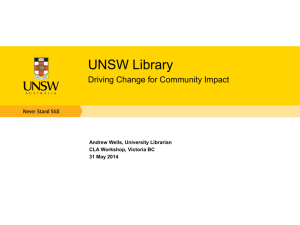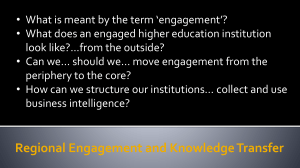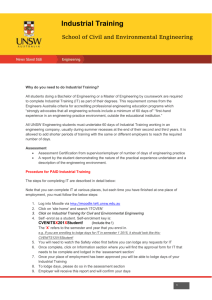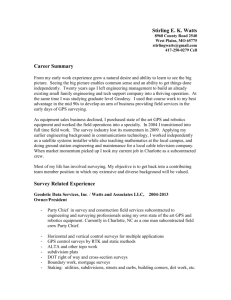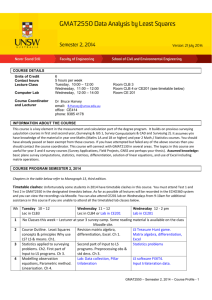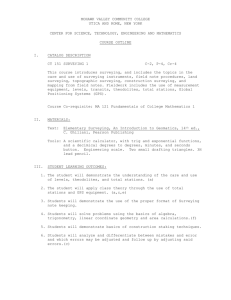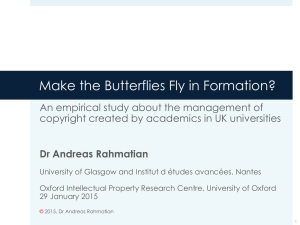Title IT @ UNSW: Clouding our education?
advertisement
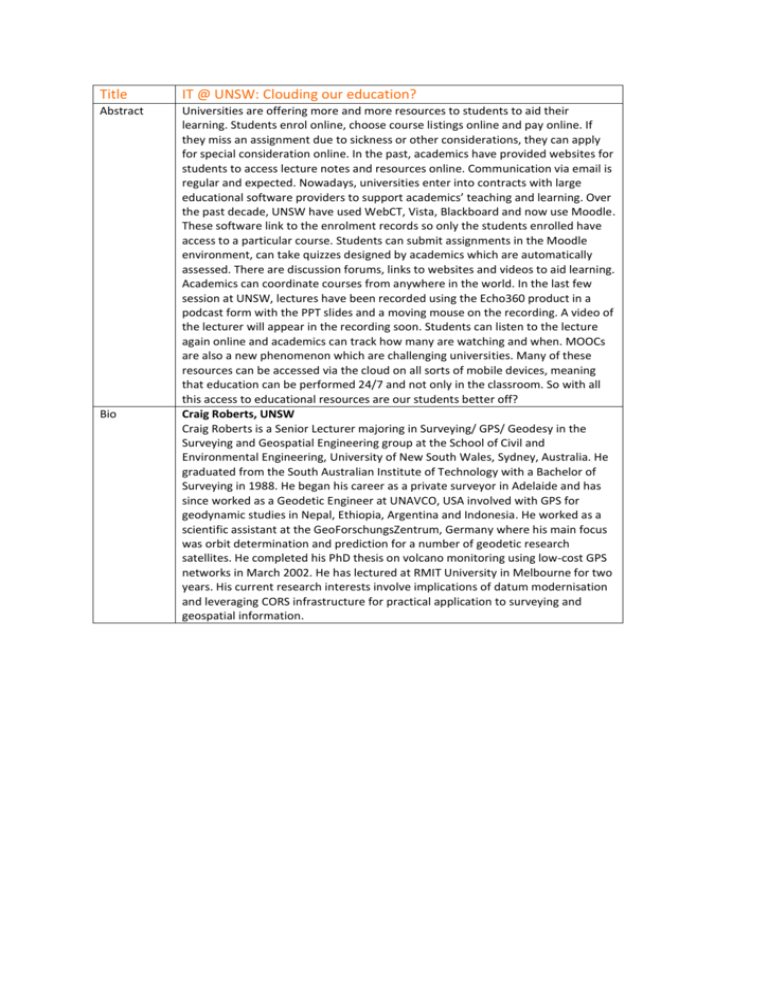
Title IT @ UNSW: Clouding our education? Abstract Universities are offering more and more resources to students to aid their learning. Students enrol online, choose course listings online and pay online. If they miss an assignment due to sickness or other considerations, they can apply for special consideration online. In the past, academics have provided websites for students to access lecture notes and resources online. Communication via email is regular and expected. Nowadays, universities enter into contracts with large educational software providers to support academics’ teaching and learning. Over the past decade, UNSW have used WebCT, Vista, Blackboard and now use Moodle. These software link to the enrolment records so only the students enrolled have access to a particular course. Students can submit assignments in the Moodle environment, can take quizzes designed by academics which are automatically assessed. There are discussion forums, links to websites and videos to aid learning. Academics can coordinate courses from anywhere in the world. In the last few session at UNSW, lectures have been recorded using the Echo360 product in a podcast form with the PPT slides and a moving mouse on the recording. A video of the lecturer will appear in the recording soon. Students can listen to the lecture again online and academics can track how many are watching and when. MOOCs are also a new phenomenon which are challenging universities. Many of these resources can be accessed via the cloud on all sorts of mobile devices, meaning that education can be performed 24/7 and not only in the classroom. So with all this access to educational resources are our students better off? Craig Roberts, UNSW Craig Roberts is a Senior Lecturer majoring in Surveying/ GPS/ Geodesy in the Surveying and Geospatial Engineering group at the School of Civil and Environmental Engineering, University of New South Wales, Sydney, Australia. He graduated from the South Australian Institute of Technology with a Bachelor of Surveying in 1988. He began his career as a private surveyor in Adelaide and has since worked as a Geodetic Engineer at UNAVCO, USA involved with GPS for geodynamic studies in Nepal, Ethiopia, Argentina and Indonesia. He worked as a scientific assistant at the GeoForschungsZentrum, Germany where his main focus was orbit determination and prediction for a number of geodetic research satellites. He completed his PhD thesis on volcano monitoring using low-cost GPS networks in March 2002. He has lectured at RMIT University in Melbourne for two years. His current research interests involve implications of datum modernisation and leveraging CORS infrastructure for practical application to surveying and geospatial information. Bio

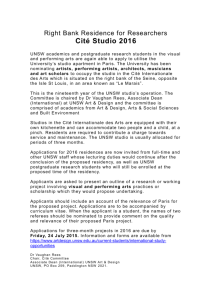
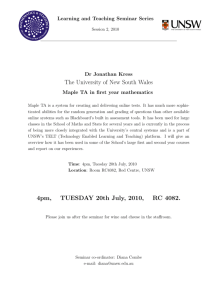
![Astronomic and Geodetic Surveying [Opens in New Window]](http://s3.studylib.net/store/data/006720332_1-995dd15e73ac73d62b2a2d2c1a39992f-300x300.png)
